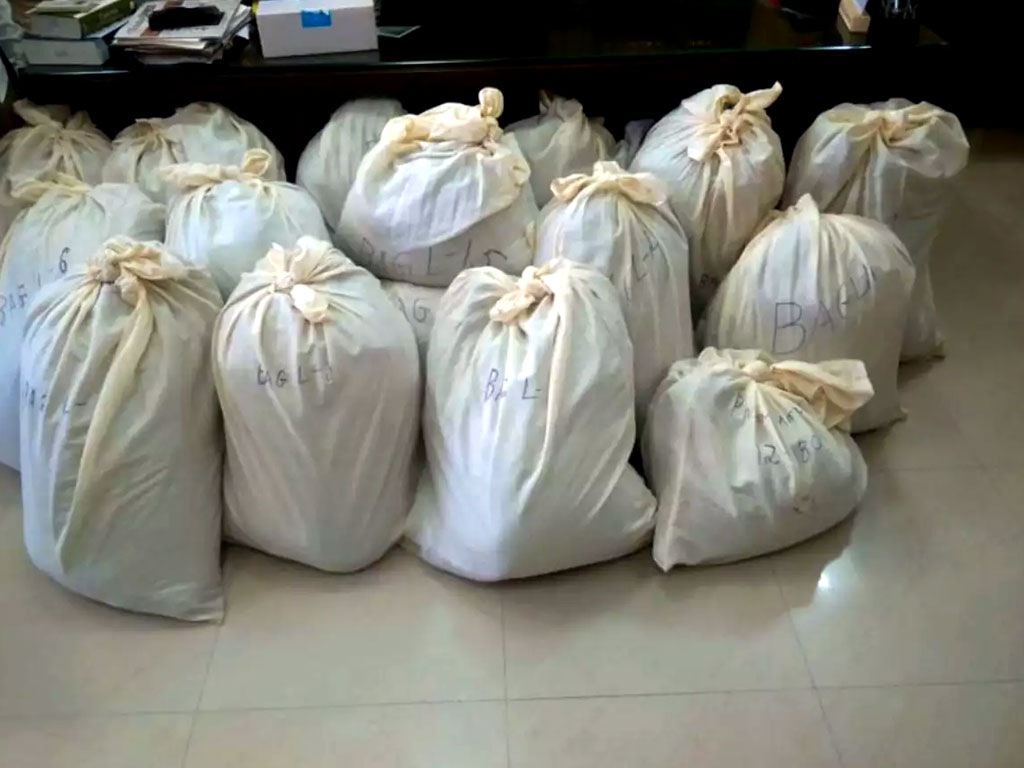
Chairman Federal Board of Revenue (FBR), Shabbar Zaidi pledged to launch a crackdown against the sale of non-taxed imported goods (smuggled items) at retail outlets across the country from 1 September 2019 while addressing the twenty first convention of Management Association of Pakistan. There is no doubt that smuggled items (particularly tyres, cigarettes, televisions sets and other electrical items) are not only a source of lost revenue for the government but they also reduce sales of domestically-manufactured items with a consequent negative impact on total output as well as employment levels.
Smuggled goods are available in abundance all over the country and are sold with impunity. These goods arrive in the country through massive abuse of Afghan Transit Trade, wrong declaration of formal imports and smuggling. For success of efforts to curb influx of goods through these channels it is imperative that the sale of such goods should be made difficult if not impossible. Only then would anti-smuggling efforts make any difference. As long as there is a market for such goods and their sale remains unhindered, smuggling cannot be curbed in a sustained manner. It is also necessary that our law enforcing agencies extend all possible assistance and help to our FBR's anti-smuggling efforts and under no circumstances should its staff be constrained to look the other way for any reason whatsoever. Additionally, the government must ensure that taxes on specific products manufactured within the country are low enough to ensure that they can compete with the prices on offer of smuggled items in the domestic market.
Shabbar further acknowledged that the manufacturing sector was bearing the brunt of taxation. In this context, the Business Recorder would like to bring to the notice of the Chairman a tax proposal contained in the budget for the current fiscal year that works against the manufacturing sector and also the service sector. That is the retention of presumptive tax albeit in the form of minimum tax. Presumptive tax in our taxation system gained currency during the first Nawaz Sharif administration after numerous complaints were received against FBR officials of rampant corruption and extortion. Trade associations and Chambers of Commerce made representations that a fixed tax be levied on businesses and that should be settlement of their final tax liability Thus a tax on turnover was levied and once paid any further tax liability of the tax payer was deemed to have been discharged. Thus presumptive taxation became the order of the day that as Shabbar rightly stressed totally destroyed the relationship between income and accumulation of assets and taxation. In the budget for 2019-20 an effort has been made to do away with presumptive tax. However, this tax still remains in place as minimum tax and must be done away with to restore equity and also the relationship between tax and income that Shabbar espouses and has repeatedly emphasized that "we have been too inconsistent in our policymaking and in the last 40 years, we have divorced the Books of Accounts from the taxation system. We do not have reliable data and the documentation of the economy remains wishful thinking." This no doubt is a reference to the failure of FBR to generate higher taxes through raising the number of filers given that: (i) using electricity bills to determine the tax liability has not been as successful as originally thought given that the bills are under names that are different from the actual consumers; the same applies to use of Nadra data; and (ii) the number of filers in recent months has risen though a large number of the new filers consist of those who are legally ineligible to file notably rich farmers, pensioners, widows and students etc.
To conclude, the FBR chief faces a serious challenge and quick results are not likely given the scale and depth of the issues facing him. At the same time, he is faced with an unrealistic revenue target for the current year which would no doubt tie his hands, though, one would hope that he is not compelled to reverse the much-needed FBR reforms.
